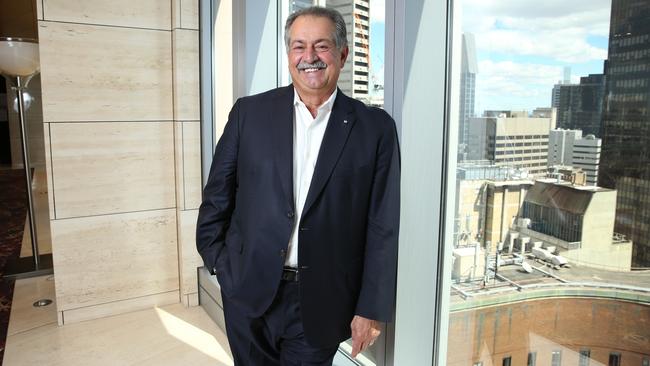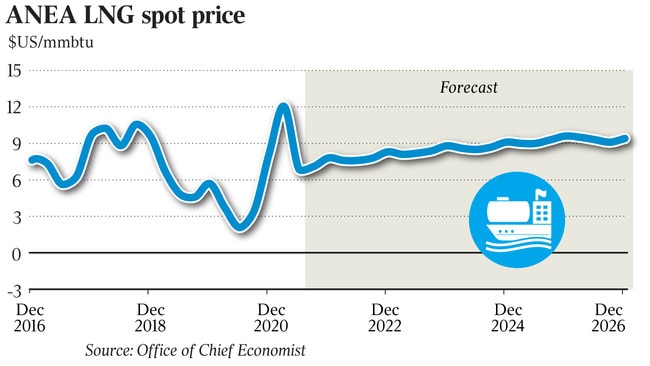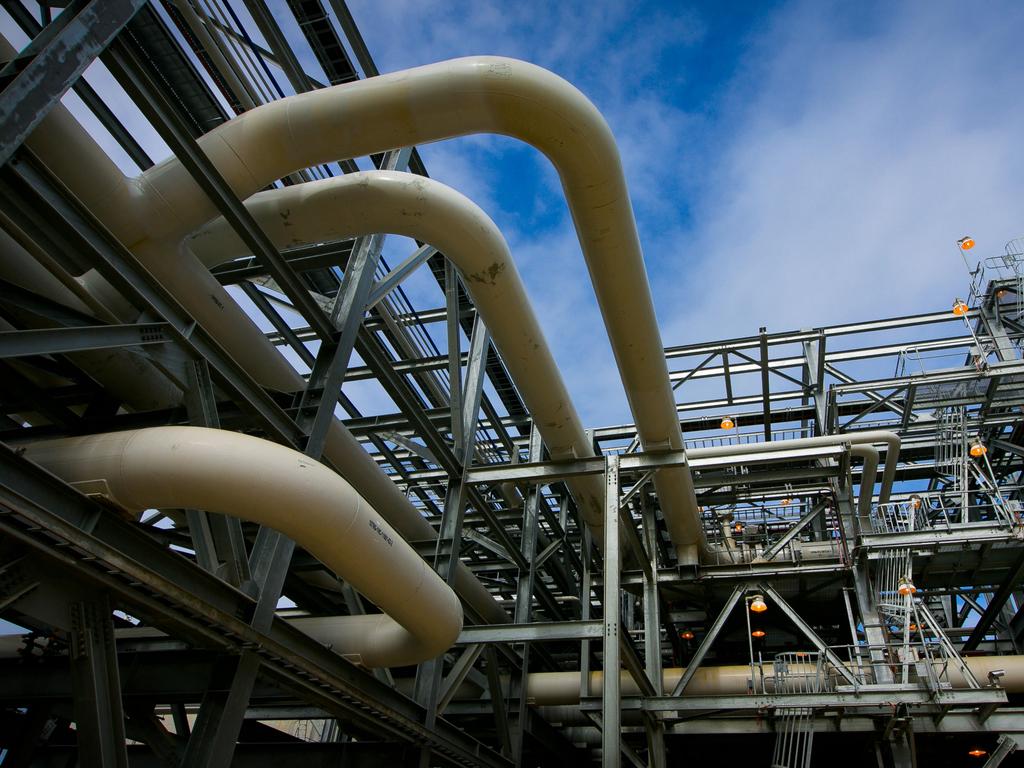Andrew Liveris hopes code of conduct puts Australia’s foot on the gas
Andrew Liveris hopes a gas code of conduct will act as a springboard for the government to move forward on a gas hub and transcontinental pipeline.

Andrew Liveris — architect of Scott Morrison’s energy blueprint to reboot manufacturing — hopes a gas code of conduct will act as a springboard for the government to move forward on a gas hub and a controversial transcontinental pipeline to boost the industry.
The National COVID-19 Coordination Commission manufacturing taskforce, chaired by the former boss of chemical giant Dow, recommended the federal government guarantee gas volumes, open new fields and build pipelines to halve the price of the fossil fuel to $4 a gigajoule.
Canberra has pulled back on some of that ambition and handed responsibility for tackling some of the thorniest issues back to companies, demanding producers and users first seal a voluntary code of conduct.
Producers’ group APPEA sent a draft of the code for the first time to users on Friday afternoon, with Mr Liveris saying the code and a gas hub at Wallumbilla could pave the way for more COVID recommendations to get government backing.
“I would have liked the full regalia of policies announced because I am actually not a sceptic that this can be done. I am actually hopeful that it can,” Mr Liveris told a UBS briefing. “The policy environment that supports that has a lot of other knock-on effects that I hope would lead to a second wave, including domestic gas reservation on the east coast and the WA pipeline.”
Several large buyers of gas complain they are unable to strike competitive long-term deals for the fuel to supply their plants, placing them at a disadvantage to international rivals. They hope to have a price mechanism based on a benchmark like the Henry Hub written into a voluntary code of conduct, a move fiercely resisted by the big gas producers.
APPEA said on Friday the draft code contained “appropriate domestic pricing methodology” that reflected Australian costs, supply and markets, and established an independent code arbiter.
One lingering issue is whether east coast gas prices can fall to a revised $6 a gigajoule target set by Mr Liveris, a board member at Australian contractor Worley and oil giant Saudi Aramco.
UBS analyst Tom Allen said a solution on gas prices had been missing from government measures.
“The government’s focus for that policy package was about doing what it can to stimulate new gas supply,” Mr Allen said.
“The part that was missing that was originally proposed by the manufacturing taskforce was specific measures targeting gas price, which was probably too low to be credible in industry.
“There was no direct support for large industrial gas users in the policy package … I suspect Andrew would be disappointed that part was missed.”

Progress on the code may play a part in other gas initiatives being considered.
The Morrison government has proposed a beefed-up gas hub at Wallumbilla to provide more price transparency and better match the needs of buyers and sellers to trade and move gas around the east coast network.
“The due date to put that in place is now. We are about a month away, maximum, from seeing how the users and suppliers come together under Angus Taylor and Keith Pitt’s leadership to actually put the framework together to create the Wallumbilla hub,” Mr Liveris said.
Experts have questioned the ambition and raised concerns over whether it is appropriate to try to replicate the giant US Henry Hub system in Australia’s much smaller market. However, Mr Liveris remains an advocate for the Henry Hub model.
“The notion of a Henry Hub can be done because the conditions are here. We have excess gas in the country — we export 95 per cent of it but we have it — we have new basins under development and a good mixture of international and domestic players.”
Resources Minister Keith Pitt kicked off the process of implementing a national gas reservation system, seeking input from state governments, gas companies and energy users before a final decision is made by June this year. A multibillion-dollar plan to revive a transcontinental gas pipeline between WA and the east coast also has the backing of Mr Liveris.






To join the conversation, please log in. Don't have an account? Register
Join the conversation, you are commenting as Logout